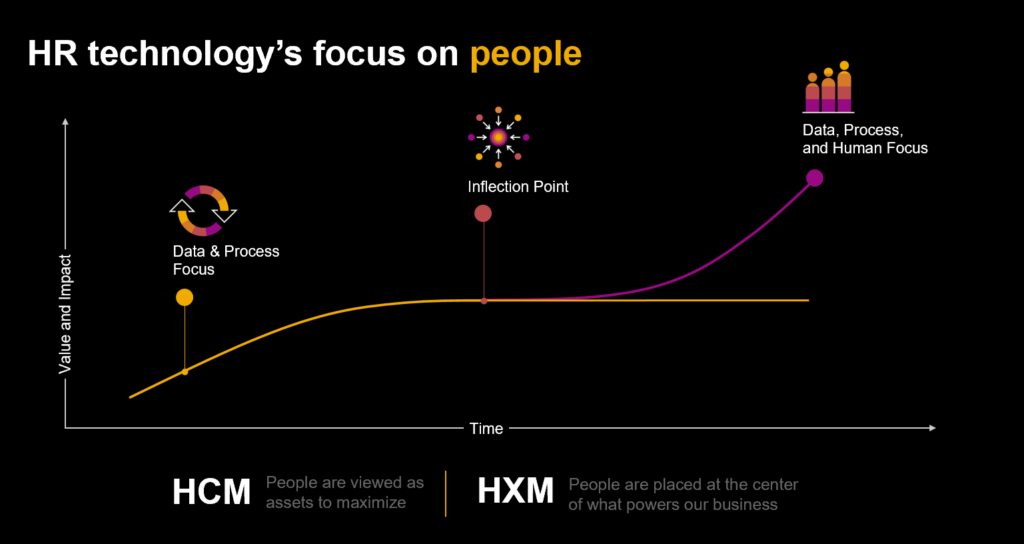Leveraging Learning Technology: Why Learner-centric Training Is More Critical than Ever

Leveraging data in learning technology can improve training decisions and add value to an organization. By building a network of online workers, a Learning Management System (LMS) can work in tandem with social learning to allow learners to engage with their co-workers online, while sharing their personal learning recommendations.
If you’re intrigued thus far on this topic, please allow me to pause for a moment to invite you to watch a recorded webinar, Leveraging Technology for Employee Development: Key Challenges and Insights. It discusses the learning and development technology landscape, including an overview of the drivers for technology innovation and how technology can lay the foundation for a successful development program.
In this new age of learning, both employer and employee expectations are changing.
Learners now expect:
- Online learning content to meet their needs without having to explain what those needs are
- Content to be easy to find, as well as relevant, as they switch between devices and multitask through day-to-day activities.
- Training to help increase their digital fluency. Whether Gen Z, Millennial, or Baby Boomer, digital skills are a necessity in most jobs today.
- Training to aid in developing new skills needed for their current, as well as future, job.
Gone are the days when people stay at the same company for most of their working life. Employees now need to know that they have the skills to do their current job as well as the attributes they need to snare their next job in what is an increasingly crowded and competitive job market.
Learning is becoming more personalized
Technological innovation and consumer trends are a driving factor behind companies shifting attention from LMS administrators to learner needs. They’re repositioning their content to offer a better learning experience, a more engaging, personalized approach to training content.
Online learning must focus on:
- Content curation
- Pull learning
- Collaborative, social learning
- Shorter, more targeted learning
Personalization – What should HR and L&D teams be doing?
Listen to learners and give them the content they need, when they want it.
Learning personalization means catering the content to the learner’s needs, interests, and preferences. Putting the learner at the center of the learning experience has created a shift from traditional top-down approaches to training. Learning is now considered a continuous journey, requiring a range of content types.
Training is delivered:
- In terms of format and length
- When and where people need it
- According to skill level / competencies
This reflects how people are learning and training outside of the workplace; scaffolded learning such as language-learning apps are a great example of this.
Learning is becoming more AI and consumer-model driven
Learners are now coming to the table with clear expectations for their own learning outcomes. They’re expecting consumer-grade experiences when it comes to learning technology; they don’t want to be spoon-fed and they want to be in the driver’s seat. AI in consumer products (such as Netflix and Spotify) have shown us that our online behavior can be used to create more relevant experiences, including corporate training.
AI – What should HR and L&D teams be doing?
Learning professionals can leverage AI to create more targeted, relevant learning journeys that can be served up in more of a consumer-model format – again, think of the visually compelling, easy-to-navigate, menu-style offerings of Netflix, Spotify, and many others. From predictive machine learning to intelligent assessment engines, AI can power solutions to create digital content and churn out more advanced analytics than ever before.
Learning is becoming more data-driven
HR and L&D have always had access to a large amount of data, but in the past, this wasn’t fully utilized. Now, with advancements in data analytics, data can be used to improve processes and decisions when it comes to online training.
Big data enables employers to better protect their employees’ movement, allowing HR to plan talent and skills needs. This can also clarify long-term recruiting requirements.
Big Data – What should HR and L&D teams be doing?
Optimize processes and efficiencies to offer greater value to the organization.
It’s no wonder why “intelligent HR” is now being used in HR circles, as exemplified by this Forbes report, which found that 82% of companies planned to either begin or increase their use of big data in HR, even back in 2018.
For years, HR technology has been focused on process automation and data quality. Both of these are good things. Process automation drives efficiency, freeing up HR to make more strategic contributions to organizational success. And data quality means a better foundation to make accurate business decisions when it comes to the workforce. But today’s HR technology is at an inflection point, driven by the introduction of all kinds of new technologies and expectations from everyone who touches the systems. Unless a new perspective emerges, the value associated with current HR technology will begin to flatten.
All in all, companies need to expand their perception of HR technology. It needs to be not only about data and process but must also incorporate a human focus. This is what is meant by “Human Experience Management” (HXM). Moving beyond traditional HCM approaches, where employees have been treated more as assets into an evolution of HXM, where every employee sits at the center of what powers the organization.
For more on this topic, watch a recorded Litmos webinar, Leveraging Technology for Employee Development: Key Challenges and Insights.






